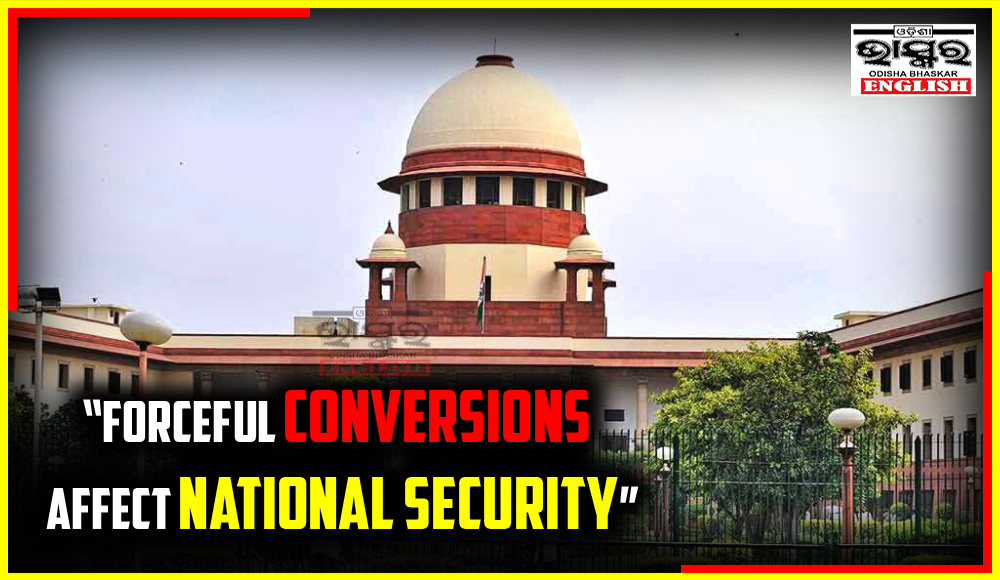New Delhi: The Supreme Court declared forcible conversion to a different religion as a “very serious issue” that could have an impact on national security, religious liberty, and freedom of conscience. The highest court requested the Central government to provide an affidavit outlining the measures that can be taken to stop such forced conversions.
A Public Interest Litigation (PIL) asking the Centre and states to take strict action against forced religious conversion carried out through intimidation or by enticing people with gifts and financial incentives was being heard by a bench of Justices MR Shah and Hima Kohli.
The bench termed such coercive religious conversion as a very serious issue and said it is time for the Centre to intervene to put a stop to them before things get complicated.
Justice Shah said: “Forceful conversion can also affect the security of the nation. It is thus better if the Centre makes its stand clear as to what steps it is taking to stop forced conversions.”
The petitioner in the case, attorney Ashwani Upadhyay, stated that either a separate law is created to regulate such conversions or the offence be added to the current Indian Penal Code (IPC). He continued by saying that the problem is a general Indian problem that requires immediate attention.
The bench echoed Upadhyay’s sentiments and remarked, “This is a very serious matter, and everybody has the right to choose religion, but not by forced conversions. It’s a very dangerous thing.”
The Centre’s Solicitor General, Tushar Mehta, told the bench that the matter had been discussed in the Constituent Assembly and that the government is aware of the situation. The government’s side will submit a response, he added.
The top court additionally ordered the Centre to express its position “very clearly” regarding the steps it intended to take. The Constitution, it was noted, permits religious conversion, but not coercive conversion.
The Centre was ordered by the court to submit any counter-affidavits in the matter, along with its answer, by November 22.




Comments are closed.